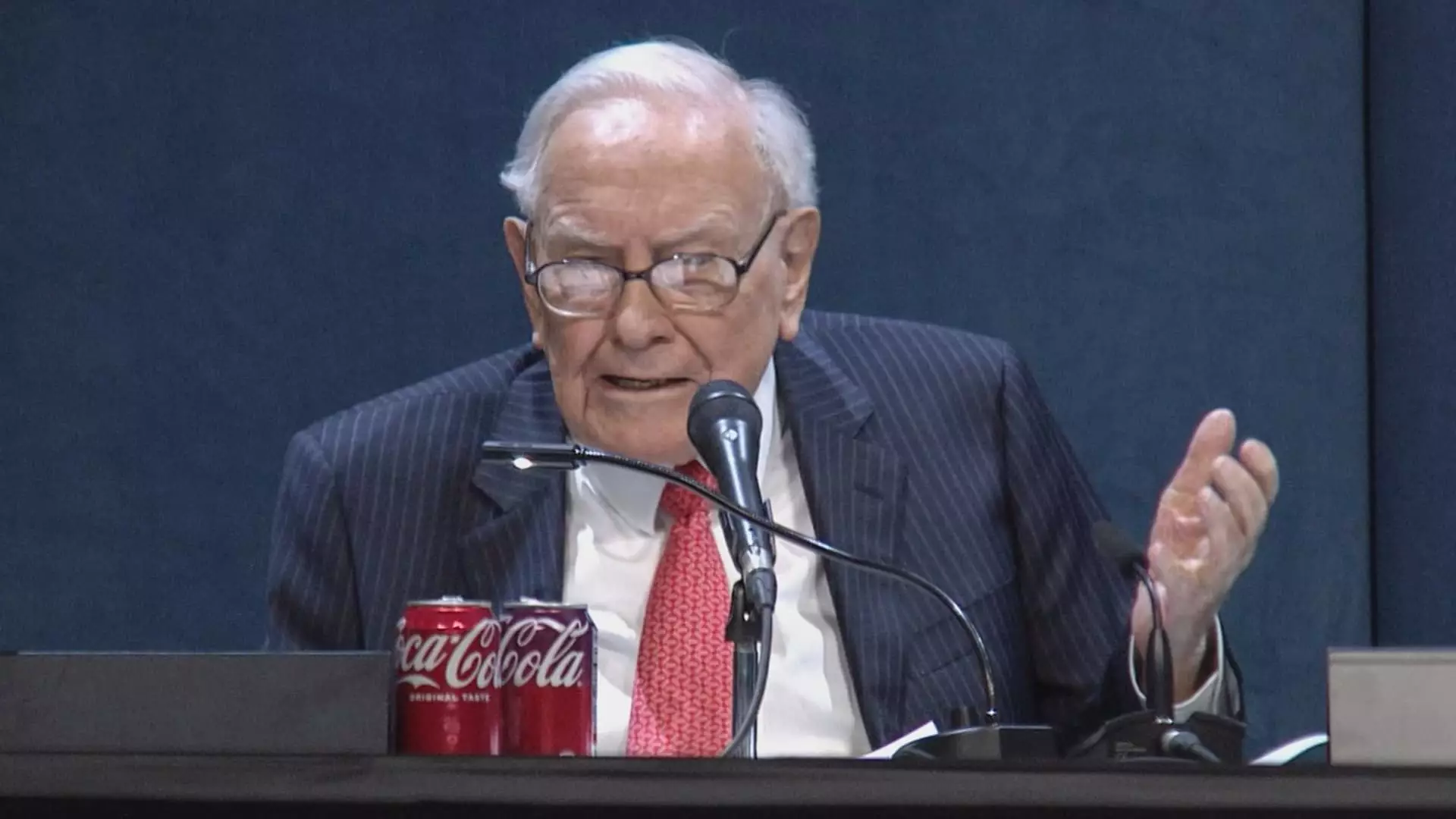Berkshire Hathaway’s latest earnings report paints a cautious picture for the conglomerate, revealing a modest 4% decline in operating profits to $11.16 billion. While the headline suggests resilience across divisions like railroad, energy, and manufacturing, a deeper analysis exposes underlying fragility. The decrease predominantly stems from a slump in insurance underwriting, which traditionally forms the backbone of Berkshire’s stability. This signals that even industry segments with historically steady cash flows are not immune to economic headwinds. The narrative of diversification as a shield starts to crack, with the report subtly hinting at vulnerabilities that could amplify amid global turbulence. If anything, this decline underscores how challenging it is for Berkshire to sustain growth without embracing more aggressive strategies—a fact that should have prompted introspection rather than complacency.
The Stock Price Sinks Despite Business Resilience
The immediate market reaction was telling: Berkshire’s Class A and B shares declined over 2%, pushing the stock down more than 12% from its mid-year peak. Warren Buffett, famed for his long-term outlook, now finds himself grappling with a market that appears increasingly skeptical of the conglomerate’s stability. There is an underlying tension between Buffett’s reputation as an astute investor and the reality that Berkshire’s prized assets are under pressure. The hesitation in the market is not merely about short-term setbacks but about a broader reassessment of Berkshire’s growth trajectory. Investors are beginning to question whether Buffett’s conservative hold-and-buy stance is still sufficient in an era marked by rapid technological disruption and shifting consumer behaviors. The stock’s dip is a warning sign that confidence is waning, and that Berkshire’s traditionally fortress-like position may no longer insulate it from larger economic shocks.
The Kraft Heinz Write-Down: A Wake-up Call or a Symptom of Deeper Issues?
Perhaps the most striking element of the report was the first-ever recorded loss on Berkshire’s Kraft Heinz investment, a staggering $3.8 billion hit. This loss is not merely a reflection of poor timing or market volatility but a stark reminder of the pitfalls of overconfidence and inflated valuations. Buffett’s acknowledgment that he overpaid for Kraft Heinz reveals a rare moment of self-awareness, yet it also exposes the risks of concentrated bets on declining sectors. The move to write down the stake, coupled with reports of Kraft Heinz contemplating spinoffs, signals that even trusted brands can falter under changing consumer tastes and competitive pressures. The exit of Berkshire executives from Kraft Heinz’s board reinforces the notion that Berkshire’s once-sterling reputation in food investments is now fragile and in need of reevaluation.
Cash Hoards and Hesitation: A Sign of Uncertainty
Despite the turbulence, Berkshire’s cash holdings still unopened sit near a record high of $344.1 billion, suggesting a strategic pivot rooted in caution rather than confidence. The decision to refrain from stock buybacks—despite prices dipping—indicates a wariness about deploying capital in a volatile environment. This stance, while conservative, risks missing opportunities to bolster Berkshire’s long-term growth. The ongoing net selling of stocks for a 11th consecutive quarter underscores a tendency towards risk aversion, perhaps driven by the uncertainty surrounding Buffett’s successor, Greg Abel. Analysts point out that the near-term outlook hinges on potential acquisitions or strategic investments, but the reluctance to act raises questions about Berkshire’s readiness to adapt swiftly. In a shifting economic landscape, restraint may serve as either prudence or paralysis—time will reveal which.
Is Buffett’s Legacy at Risk? Critical Perspectives
Ultimately, Berkshire Hathaway’s current trajectory invites a critical eye. Warren Buffett’s famed patience and stockpile of cash have long been seen as strengths, but in a dynamic global economy, these strategies risk becoming liabilities. The conglomerate’s inability to accelerate earnings growth or capitalize on its cash reserves points to a broader complacency—an over-reliance on past successes rather than a bold vision for the future. As Buffett steps back and Greg Abel prepares to take the helm, the question remains: can Berkshire evolve beyond its traditional prudence, or will it remain constrained by an inflexible corporate culture? The current juncture, marked by a confluence of earnings setbacks, capital preservation, and strategic stagnation, suggests that Berkshire’s core narrative may need a serious reconsideration, lest it become a relic of past glories rather than a driver of future growth.

